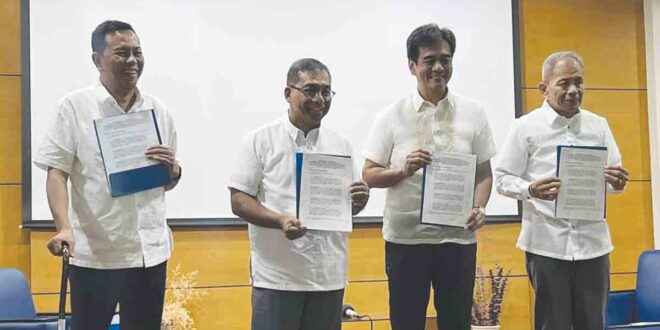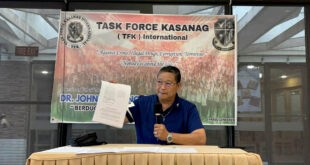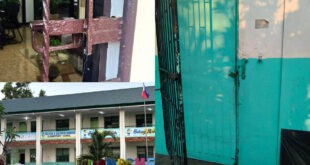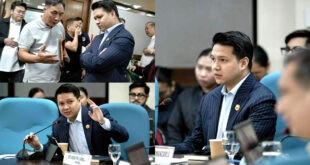THE Department of Science and Technology (DOST) has signed a Memorandum of Understanding with various government agencies to support its program of establishing smart and sustainable communities in the Philippines.
Signatories to the document were DOST Secretary Renato Solidum, Interior and Local Government Secretary Benjamin Abalos Jr. represented by Asst. Secretary Atty. Romeo Benitez of the Legal Affairs Dept.; Dept. of Information and Communication Technology (DICT) Secretary Ivan John Uy and Atty. Engelbert Caronan Jr., president and CEO of the Development Academy of the Philippines (DAP).
Each agency has its own set of mandates to pursue the vision of the program. For DOST, among its responsibilities is to “lead in the development of a holistic and synergistic research-driven framework and roadmap through a dynamic partnership of government, academe, private sector, civil society sector and other instrumentalities/organizations for smart and sustainable communities.”
Meanwhile, the Department of Interior and Local Government (DILG), is mandated to “provide technical assistance to local government units (LGUs) as they transition into a smart and sustainable communities” while DICT is to “conduct assessments of LGU capabilities and provide global metrics and recommendations and support to develop digitalization plans and acquire the necessary ICT infrastructure.”
On the other hand, the DAP is to “develop a tool for knowledge and skills gap assessment for the stakeholders, particularly the LGUs, and recommend/ implement suitable interventions/capacity building activities to support the transition toward smart and sustainable communities.”
It should also “provide assistance to the LGUs in the development of their respective roadmap/ plans including the milestone indicators for monitoring and evaluation; and identify short-term , medium-term and long-term undertakings and projects and the integration of efforts and initiatives of the collaborating partners toward the attainment of the goals of this collaboration.”
The parties also have common responsibilities, which include among others “the development and integration of safety measures/mechanisms in the program’s framework to defend communities from cyberattack, among others, which may compromise the integrity and safety of data and information and to sustain the operations and delivery of services.”
“We forged the MOU to initiate the final implementation of the program. The parties commit to have a participatory and collaborative force to attain the objectives of the program,” Mabborang said.
The important document further stressed that the MOU “serves only as a record of the parties’ intentions and does not constitute or create any legally binding or enforceable rights or obligations, expressed or implied, under domestic or international law and will not give rise to any legal process.”
 HATAW! D'yaryo ng Bayan hatawtabloid.com
HATAW! D'yaryo ng Bayan hatawtabloid.com






















